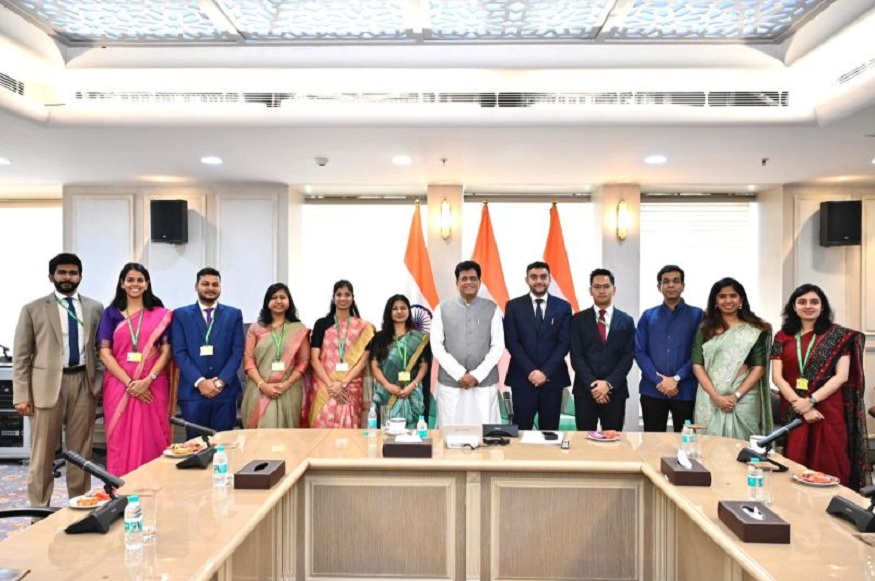
Investment banking conferences in an ever-shifting world of international finance have become necessary meetings for leaders, innovators, and decision-makers to meet and effect the trend of financial services. These are critical places for networking, knowledge exchange, and development of strategic alliances, key to driving the sector forward. The traditional conference model has undergone profound adjustments over the last few years, adapting to updated solutions and changing market realities, while maintaining full relevance of its function as a key factor of the industry growth.
The traditional milestone keynote speeches and panel discussions are going to be replaced by interactive workshops and pitch contests, as well as immersive technology demonstrations at the modern investment banking conference. Such evolution is a confirmation of the growing appreciation of the industry in the fact that innovation does not emanate only from the well-established institutions but from a range of sources within the financial ecosystem. The merging of technology innovation and classical banking wisdom has created a lively setting in which classical procedures are always being challenged and upgraded.
Connecting Innovation with Conventional Banking at Modern Conferences
At today’s investment banking conferences, the mutuality between disruptive technologies and traditional banking practices creates a fascinating world of difference. Senior executives from renowned financial institutions are taking the stage today with developers and entrepreneurs who are utilizing cutting-edge technology to transform traditional banking operations on their heads. This contrast of opinions results in a productive discussion about how the sector should embrace innovation and maintain the security and stability that customers seek from financial industry suppliers.
To bring meaningful exchange among such diverse stakeholders, the conference organizers are increasingly curating their agendas. Specialized tracks that focus on different aspects of banking transformation allow participants to engage with areas of special interest while still keeping in sight an overview of industry changes. These specific workshops provide participants with applicable insights, which can be applied to their businesses, and they can speak about the AI-driven risk assessment models, block chain utilization in settlement procedures, or algorithmic
Fintech’s Key Role at Contemporary Banking Conferences
The fintech industry must receive significant attention at every modern investment banking conference. For financial institutions of all sizes, integrating financial technology into core banking operations has evolved from a side issue to a top strategic goal. The industry’s pressing need to comprehend and implement technology that might boost productivity, cut expenses, and improve customer experiences is reflected in the overflow of audiences that frequently attend conferences exploring fintech breakthroughs.
These events’ fintech industry conference sections showcase cutting-edge innovations that could revolutionize particular banking operations. The potential of distributed ledger technology to expedite settlement procedures and produce more transparent transaction records continues to spark a lot of excitement. Banking professionals who are keen to use these tools for more complex market analysis and risk management are drawn to seminars on advanced data analytics and machine learning. Usually, the dialogue is dominated by real-world uses of these technologies rather than theoretical debates.
International Views and Local Innovation Centers
As local financial innovation ecosystems have developed, regional events have become more important, even though big financial capitals like New York, London, and Hong Kong still host prestigious investment banking conferences. Emerging financial centers’ conferences present unique solutions to banking problems that are a reflection of their own market structures, regulatory frameworks, and customer preferences. These regional conferences offer insightful information about various financial innovation models that might not otherwise be widely discussed.
The cross-pollination of ideas between established and rising financial hubs enriches the global investment banking conference circuit. Professionals in finance are exposed to several strategies that they can modify for their respective market environments. As financial institutions look to serve a growing number of international clientele and manage intricate cross-border regulatory requirements, this global perspective is especially beneficial. The most effective conferences support these global interactions while keeping an eye on real-world applications that are pertinent to participants’ daily tasks.
Integration of Sustainability and ESG in Investment Banking
A recurring subject at recent conferences has been the incorporation of environmental, social, and governance (ESG) considerations into investment banking operations. The debates reach from sustainable finance product development to ESG risk assessment methodology and the framework of impact measurement. The most forward thinking investment banking conferences rise above the shallow conversations of ESG as a marketing thought to understand how the sustainability principles can be incorporated in the very foundational banking and investment choices.
This focus identifies both increased regulatory focus on climate-related financial risk as well as increased customer desire for financial products and services that would support sustainability goals.Instead of treating ESG issues as distinct or incidental issues, conference sessions that cover these subjects usually focus on doable strategies for integrating them into current banking frameworks. The way that many institutions approach their primary business models has fundamentally changed as a result of the confluence of sustainability impact and financial success.
Future-Oriented Technological Investigations
Discussions about cutting-edge technologies are now a crucial part of the investment banking conference experience. Professionals looking to learn how emerging technologies might change their industry in the years to come are drawn to sessions that explore quantum computing applications in financial modeling, advanced cryptographic techniques for secure transactions, and next-generation user interface designs for financial applications. These talks assist participants in discerning between purely theoretical ideas and those that have the potential to be implemented shortly by striking a balance between technical complexity and practical relevance.
The dynamic between well-established financial institutions and technology suppliers is always changing, and conferences are crucial platforms for establishing these alliances. Questions about build vs purchase choices, integration difficulties, and tactics for preserving competitive difference in a world that is becoming more and more technology-driven are regularly discussed. Instead of spreading oversimplified myths about digital change, the most fruitful conferences encourage candid discussions about these intricate issues.
Reimagining Networking for Maximum Benefit
Conventional cocktail receptions cannot provide the conditions for deeper exchanges that structured networking sessions centered on particular issues or concerns might. The understanding that the connections made at conferences frequently produce just as much value as the official program substance is reflected in these improvements.
Senior executives take part in roundtable meetings that are invitation-only and provide a private setting for open communication about strategic issues. Specialists and middle managers participate in skill-building programs to network with colleagues dealing with comparable operational issues. Conference arrangements that incorporate mentorship programs are beneficial to early-career workers. Attendees at various career stages will get the most out of their conference attendance thanks to these diverse networking styles.
Conclusion:
Despite predictions that online messaging would diminish the importance of face-to-face meetings, the investment banking conference is indispensable among industry gatherings. Face-to-face connection is particularly important for the financial services industry due to the complexity and relationship nature of its operation. Although digital components have improved the conference experience, they have complemented rather than replaced the essential human interactions that foster trust, encourage creativity, and create the professional networks that propel the sector forward.
Investment banking conferences will surely continue to modify their formats and content to reflect shifting objectives and new difficulties as the financial services industry develops. The most successful events will continue to emphasize promoting useful ideas, fostering meaningful discourse, and establishing spaces where people with different viewpoints may constructively interact with one another. These meetings will continue to be crucial drivers of the continuous change in international finance.
